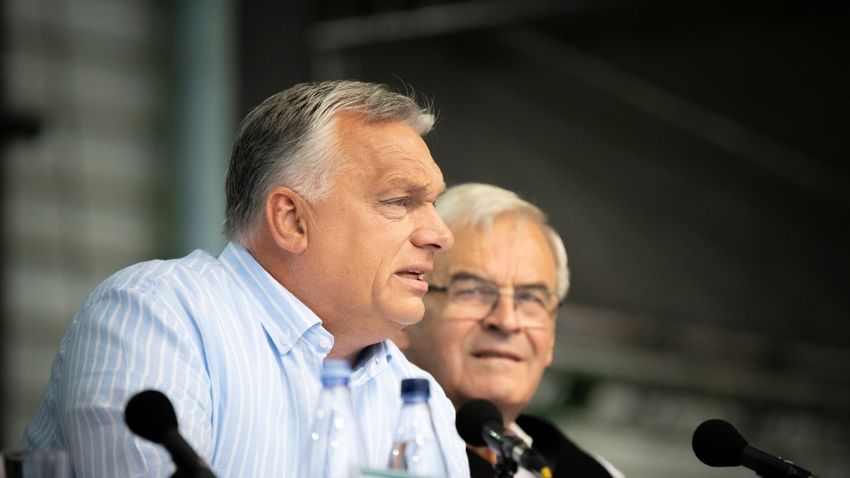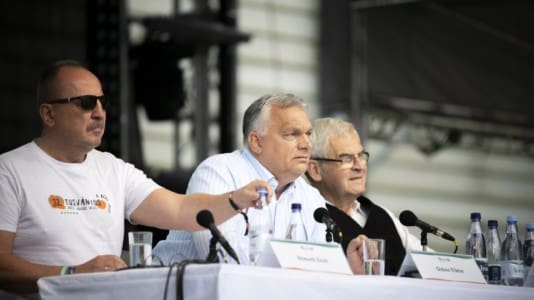The Czech government has issued a response to Hungarian Prime Minister Viktor Orbán after he accused Czechia of abandoning the Visegrád Group and getting into bed with the EU federalists.
In his keynote speech at a Hungarian summer university in Tusnádfürdő, Transylvania, on Saturday, Orbán lamented the demise of the Visegrád alliance, which he believes has become fractured, evidenced by both the split in the EU’s unwavering support for Ukraine and also the controversial migration pact proposed by Brussels.
“The European federalists launched an attack against the Visegrád four, and we can all see the result,” Orbán told attendees.
“The Czechs have essentially switched sides, and Slovakia is wobbly. Only the Poles and the Hungarians are holding out,” he added.
The assessment was refuted by leading members of the Czech government on Saturday evening, who reacted angrily to Orbán’s comments.
Czech Prime Minister Petr Fiala led the charge, insisting that “the Czech Republic is a sovereign state and my government is defending our national interests.
“We decide independently what we want, what we support, and what we want to change in the European Union. Orbán got used to something else because the previous Czech Prime Minister Andrej Babis depended on him for his European policy. In this sense, his frustration is understandable,” he quipped.
Interior Minister Vít Rakusan said that “absurd labeling certainly does not contribute to the necessary cooperation between Central European countries. On the contrary, it requires mutual respect.”
“The only change that the Czech Republic has undergone in its relationship with the European Union is that we have moved from opportunism to a constructive European policy based on shared values,” he added.
For many years now, Orbán has been known to deliver his long-term assessments and plans at Tusványos, making his most important announcements there.
In his assessment of the European political landscape, Orbán held out hope that national state democracy would prevail over the federalist tendencies in Brussels, pointing to several conservative electoral victories in recent times as well as the rise in popularity of conservative forces in several other member states.
He cited Meloni’s victory in Italy and claimed “something is moving” in Austria concerning the popularity of the Austrian Freedom Party (FPÖ). He also referenced the Spanish election held on Sunday, which was subsequently won by the conservative Popular Party, although Alberto Núñez Feijóo fell short of an absolute majority.
In addition, recent conservative victories in Finland and Sweden, as well as the rising popularity of the right-wing Alternative for Germany (AfD) will undoubtedly buck the trend in Brussels toward “an ever closer union.”





